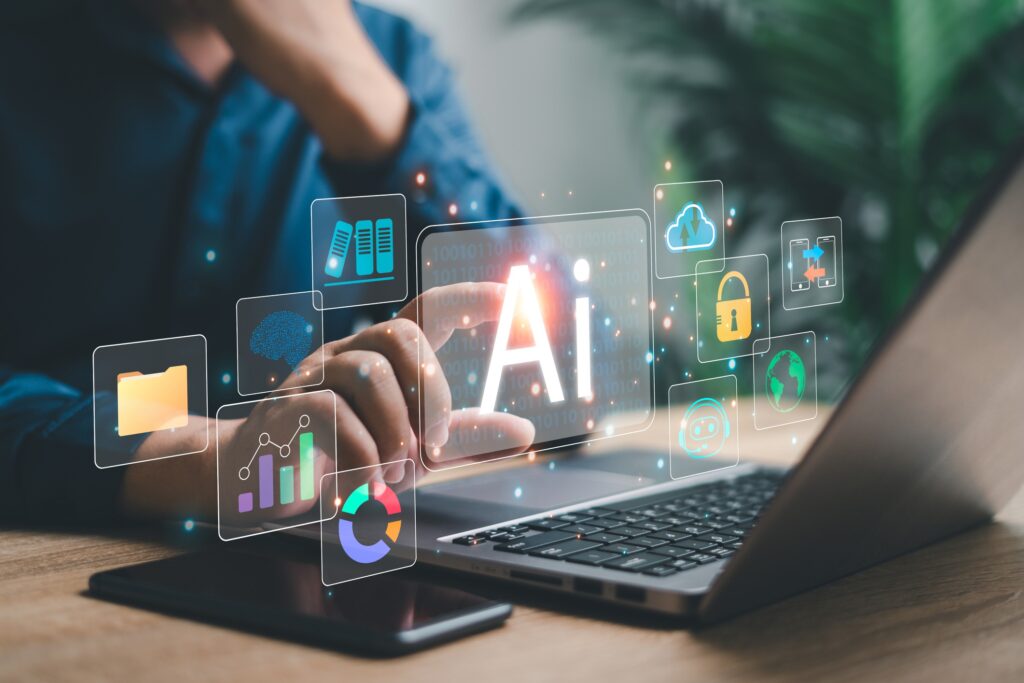The surge of AI technology adoption in several industries has revolutionised the way of work and employee management. It has also successfully transformed how organisations manage their workforce, monitor productivity, optimise workflow, and ensure compliance effectively.
However, the rise of AI-based employee monitoring software often raises serious concerns about trust, privacy, and ethical complications.
Here, the main challenge for businesses is to positively leverage suitable monitoring solutions without compromising on privacy guidelines to prevent the creation of a surveillance work culture.
So, do you think it is possible to incorporate AI-driven monitoring software to enhance productivity while also maintaining employee trust? Let’s find out together.
Role of AI in employee monitoring software

Advanced employee monitoring software embodies strong AI-based analytics intending to offer actionable insights into employee performance.
Instead of continuously tracking screen activity or keystroke logs, ethical AI-driven platforms focus on:
- Real-time productivity insights: AI generates real-time reports to help both employees and managers with efficient adjustment of their work routines.
- Anonymised activity dashboard: AI-integrated dashboards aggregate employee data without breaching individual privacy.
- Automated work pattern analysis: AI detects certain patterns or trends in employee workflows that enables managers to optimise schedules and workload distribution.
- AI-powered burnout prediction: It can proactively identify overworked employees by detecting early signs of burnout, thereby preventing severe exhaustion and disengagement.
- GDPR compliance and transparency: The opt-in mechanisms help with collecting employee data.
- Context-based monitoring: Rather than continually monitoring every activity of employees indiscriminately, AI incorporated systems can assess the context or purpose, guaranteeing tracking and monitoring of only relevant work-related activities.
These features of most AI-centered platforms warrant that organisations obtain useful data without compromising on employee privacy.
Boosting productivity without breaching privacy
AI-driven monitoring solutions are indeed advantageous. However, one of the key concerns or challenges surrounding these tools is that they overlook mutual trust and privacy within the workspace.
One of the case studies from Insightful.io presents compelling proof that ethical AI incorporation into the work system can result in 25% productivity growth. This number is derived without seeing any harmful impact on workplace morale. The key drivers of this success include:
- Empowering workforce: The monitoring tool empowers employees with access to their performance reports so that they can self-assess and regulate their work habits.
- Anonymised reporting: Managers and supervisors receive extensive and aggregated insights on each employee instead of individual data. This lowers the risk of micromanagement.
- Transparent communication: Before operating the monitoring system, employees are informed of the change, its purpose, what data will be collected, and how it will be positively utilised to benefit them.
These principles of AI technology tools facilitate an environment of productivity enhancement rather than a surveillance mechanism.
Compliance and transparency concerns

Any kind of workplace monitoring must adhere to set guidelines and protocols. This is why regulatory compliance is critical to ensure ethical AI adoption in the workspace.
Thankfully, most employee monitoring software policies align with the General Data Protection Regulation (GDPR) guidelines, making it possible to drive better transparency and legal protection for the organisation and its employees.
In this regard, AI-powered ethical monitoring platforms set a standard by employing:
- Clear data usage policies: Well-detailed and structured documentation is prepared detailing what data AI will collect and how it will be used.
- Data security measures: Solid built-in security measures confirm that employee data remains encrypted and is made accessible only for legitimate and permitted business needs.
- Opt-in monitoring: This implies prior consent of employees for tracking of data, building a fair and transparent workplace culture.
Case study showing ethical AI in action
Case 1: Tech firm gains 25% productivity growth
A medium-sized software development company incorporated Insightful.io’s employee monitoring software intending to amplify their remote work efficiency. By leveraging the software’s AI-based productivity analytics and burnout prediction, their outcome was:
- Up to 25% spike in project completion rates
- A staggering 30% reduction in burnout-related employee absenteeism.
Case 2: E-commerce company enhances work-life balance
A US-based E-commerce company struggles with employees’ excessive overtime issue. By employing ethical AI, GDPR-compliant monitoring tools, they saw better management of work hours, resulting in a 25% boost in employee work-life balance scores, achieved through an internal survey.
Engaging employees in ethical AI use
Businesses and organisations should integrate the following interactive elements to promote ethical AI practices in the workspace:
- Surveys and feedback: Seek employees’ perspectives on using monitoring tools. Their opinions will help improve and ensure the user-friendliness of the tools.
- Self-monitoring dashboards: Employees with access to their productivity data are empowered to self-adjust their work schedules and habits.
- Workshops on AI transparency: To further build trust among employees, host sessions to explain the AI monitoring system and its potential perks.
These interactive elements enable improved understanding between employees and employers and the AI while building a dynamic of transparency and accountability.
Future of ethical AI in employee monitoring

With time and increasing advancements, AI-driven workplace tools are gradually shifting towards a more ethical approach. Therefore, organisations intending to boost employee productivity without compromising on workplace morale should:
- Incorporate AI for employee well-being: Deploy AI models into the work system that proactively help prevent excessive workload and burnout instead of using them just to obtain measuring output.
- Implement transparent policies: Prepare a clear and precise document on how the new employee monitoring software will be utilised, encouraging employees to be involved in consented decision-making.
- Leverage anonymised data: Rather than individually tracking employees, shift to team-based monitoring to gain all-around productivity insights.
- Promote two-way communication: Encourage employees to put forward their concerns and suggestions representing their perspectives on employing monitoring tools.
- Ensure adherence to privacy laws: Be sure that your chosen monitoring software adheres to CCPA, GDPR, and other relevant regulations.
Last thoughts
If implemented ethically, AI-driven employee monitoring software, is a valuable tool to enhance workplace efficiency without breaching employees’ privacy and trust.
By leveraging all the relevant features and functions of the integrated AI software, businesses can achieve a balance between privacy and productivity.
Now, would you be supportive of using AI-powered monitoring tools if the main focus is on fairness and employee well-being?







